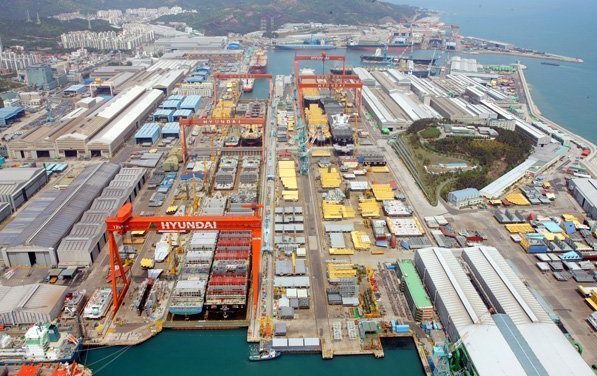Shipbuilding as a demographic weather vane

“I look forward to the day we are not the world’s top shipbuilding nation.” On the face of it a strange thing for a vice president at the world’s largest shipbuilder, Hyundai Heavy Industries (HHI) to be telling a journalist colleague of mine some 12 years ago. At the time South Korea had only recently dethroned Japan into top spot in the global shipbuilding league, and HHI was about to go through an incredible decade of growth.
However, step back and view the comment from a greater historical and macroeconomic perspective. Shipbuilding can be seen as a stepping scene in the evolution of a national economy. Go back to the 1970s and Gothenburg was one of the greatest shipbuilding cities in the world. A couple of decades prior to that and the United Kingdom still ruled the seas when it came to ship construction. But things move on, economies develop, demographics change – people get richer, their skillsets change, their ambitions go higher.
At the moment there is a great deal of soul searching in, errr, Seoul – the nation is questioning what its industrial priorities should be as its once solid shipbuilding scene faces a once-in-a-generation style crisis. With all of the largest yards – HHI is joined by Daewoo Shipbuilding & Marine Engineering, Samsung Heavy Industries, STX Offshore & Shipbuilding and Hanjin Heavy Industries & Construction – now going through painful restructuring with thousands of layoffs and many smaller yards folding, Koreans are wondering if the time has come for that generational industrial shift.
Semiconductors, smartphones, even smart cars – these are all industries where South Korea can excel.
Koreans are asking whether their tax money should be going on saving old industries such as shipbuilding (and beleaguered shipping lines too).
The same questions are being raised in Singapore where shipyards – long viewed as a sunset industry, but that enjoyed an incredible Indian summer from 2010 to 2014 – are now in trouble.
Could Keppel and Sembcorp merge? The two giants of the local Singapore yard scene are in trouble. It is not out of the question.
